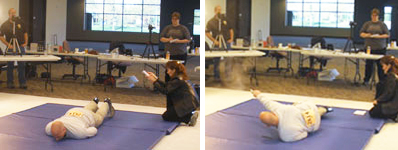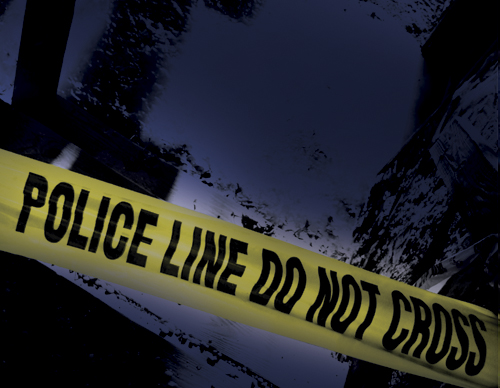
In “The Science of Force,” Dr. Joel F. Shults looks at studies conducted by the Force Science Institute (FSI), a research center that examines human dynamics in high-stress, rapidly unfolding force encounters, in light of real-life use-of-force stories from five FOP members across the country.
Shults writes that FSI, under the direction of Dr. Bill Lewinski, offers “research [that] doesn’t make a bad use of force good, but does explain justified uses of force that look bad to the untrained eye. Essential findings from FSI have shown that rapid movements of suspects justify fast and decisive actions by police officers, that fatigue affects performance and that memory works differently in recalling traumatic events.”
From an Illinois officer’s fight in the middle of a busy highway to a rolling gunfight between a Michigan officer and a carjacking suspect, the member stories demonstrate the lightning speed of events that can challenge an officer’s ability to respond quickly and effectively. Lewinski’s research on the speed of attacks shows that even untrained aggressors can bring a weapon to bear and fire faster than the average officer can shoot, even with a finger already on the trigger.
Further underscoring the challenges of containing a combative suspect in a force encounter, Lewinski’s recent studies on exhaustion show that even officers in excellent physical condition can reach immobilizing exhaustion in less than 60 seconds of all-out exertion.

Below, FOP members share their candid tips for use-of-force encounters.
From the Mouths of FOP Members
“There are three types of cops: the born ones, the made ones and the 30% pretenders. Attitude without tactics will get you hurt.”
— Officer Mark Caley (Michigan Lodge #98)
“The element of surprise will get you if you are in a relaxed state and expecting compliance. Don’t ever relax.”
— Retired Officer Virgil Perisee (Illinois Lodge #7)
“You’ll fight better if you don’t take it personally.”
— Detective/Police Instructor Steve Gallo (New York Lodge #333)
“Fights seem like forever.”
— Detective/Training Coordinator John Landry (Florida Lodge #61)
“I survived on training and experience. Most of what I learned was on the street and from other officers.”
— Retired Officer Don McConville (Maryland Lodge #4)
“Get in close and use their energy. The more you swing, the quicker you tire.”
— Detective/Police Instructor Steve Gallo (New York Lodge #333)
“My brain told me what to do.”
— Retired Officer Don McConville (Maryland Lodge #4)
“I have to rely on technique. If not, I lose.”
— Detective/Training Coordinator John Landry (Florida Lodge #61)
“You pick up the book for the incident, but if you’re never trained to do that, your page is blank.”
— Retired Officer Virgil Perisee (Illinois Lodge #7)
“When you think you’re doing everything right, reassess.”
— Officer Mark Caley (Michigan Lodge #98)
To read the full article, check out the Summer 2011 issue of the FOP Journal.





